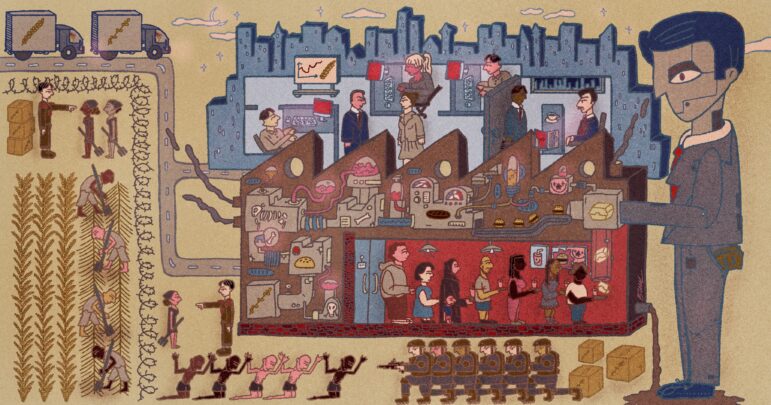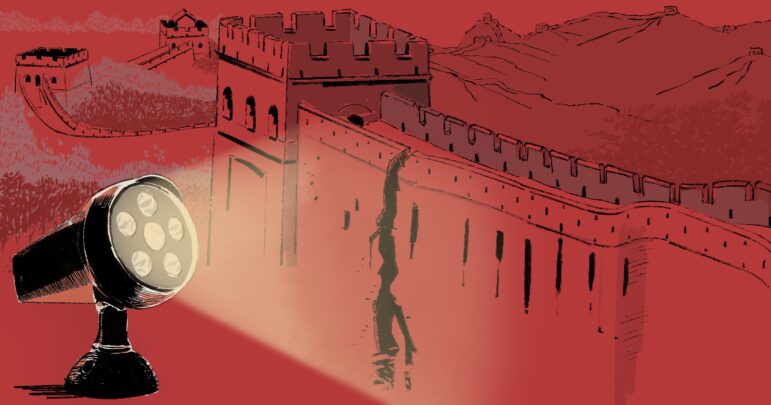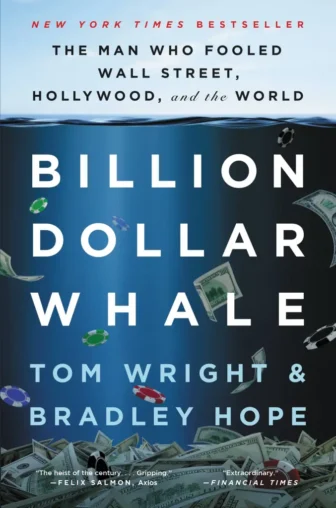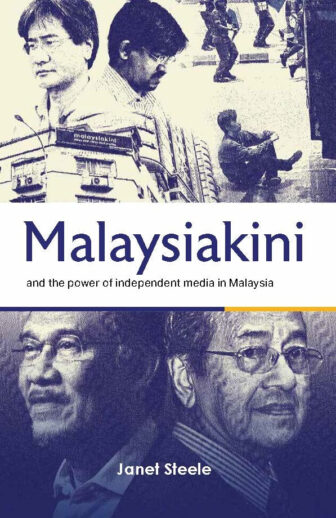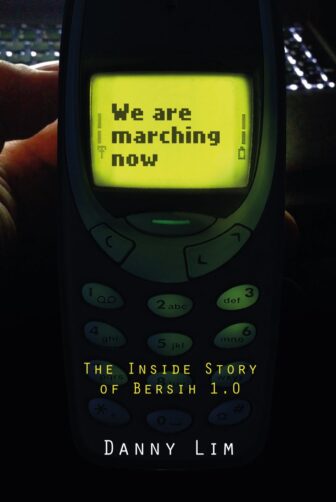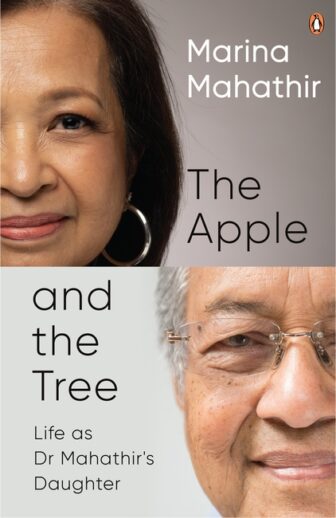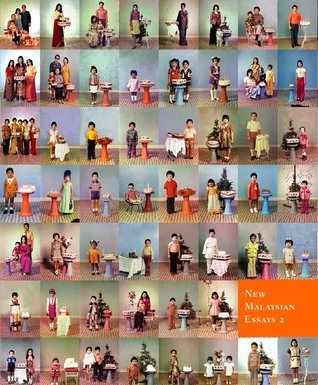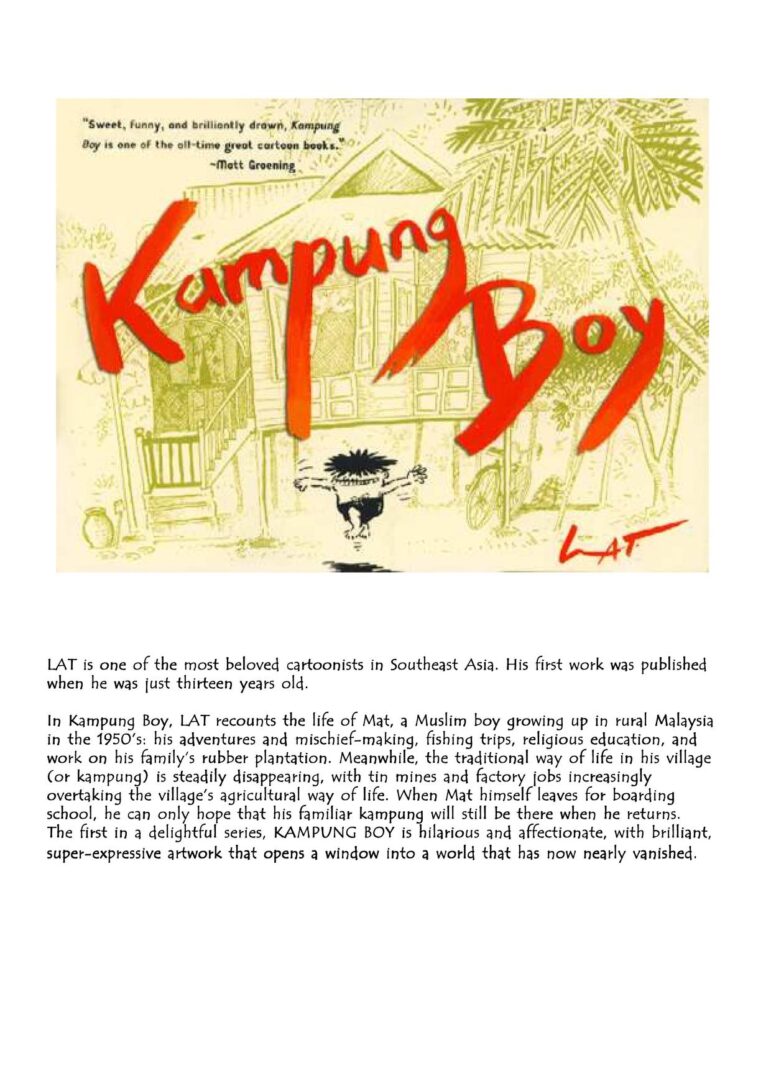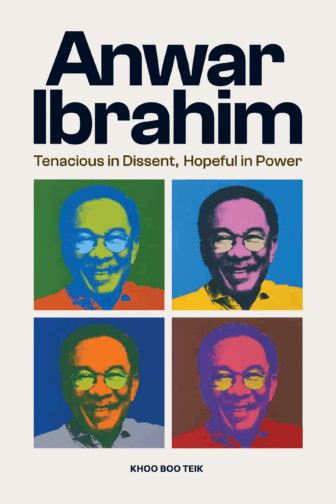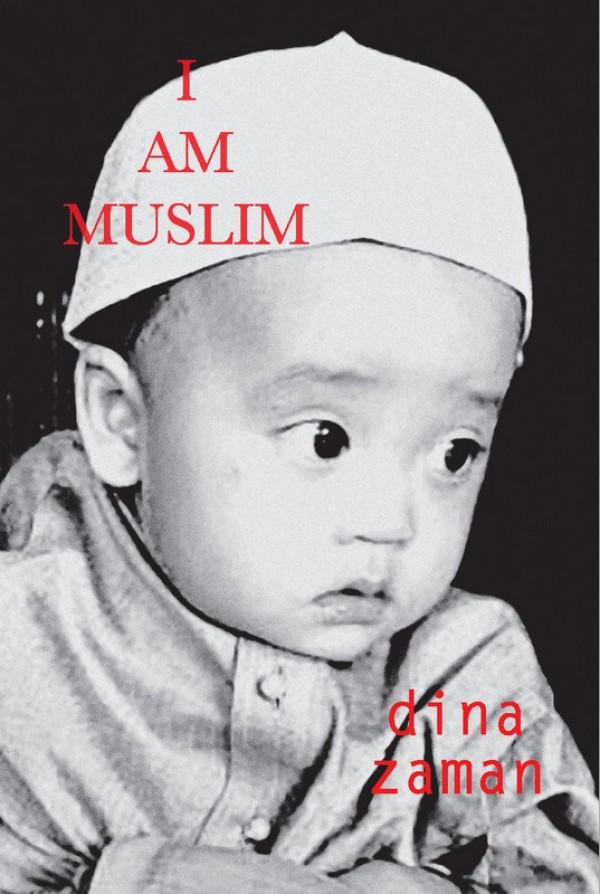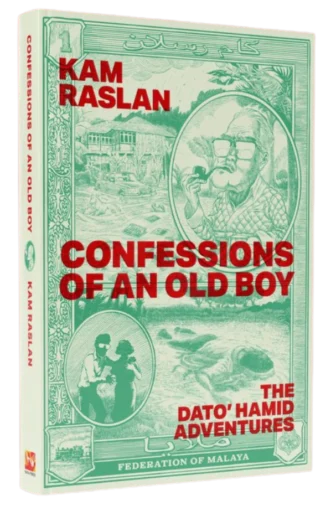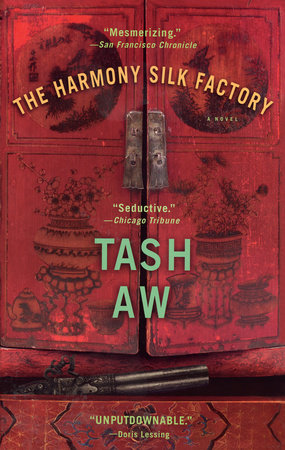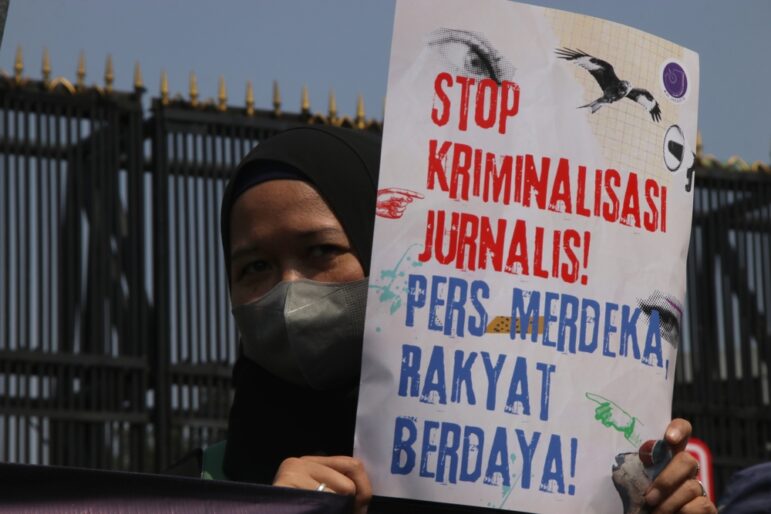

A bookstore in Kuala Lumpur, Malaysia, where alcoves reach up to the ceiling. Image: BookXcess bookstore / Shutterstock
GIJN Bookshelf: The Malaysia Edit
We know the drill. You’re the kind of reporter who wants to know all about the place where you are going. The politics, the scandals, the major cultural moments that made the nation. But it’s not always a story that can just be understood through the factual accounts — so the fiction matters too. Who is the most popular writer? Why? What can they teach us about how a community lives and breathes? How do they write a country’s cities, its mountains, its daily rhythms?
Here with the latest edition of the GIJN Bookshelf are two journalists with a dozen books that can help. Malaysia-born Eunice Au is GIJN’s global team manager and a former reporter at Malaysia’s New Straits Times, while Columbia University’s Dr Anya Schiffrin made her first trip to Malaysia in 1998.
Their list covers everything from a deep dive into the 1MDB scandal — one of the biggest controversies in Malaysia’s recent history — to the romantic, fictionalized story of Somerset Maugham’s time in George Town by one of the country’s most renowned fiction writers, Tan Twan Eng.
Non-fiction
The Billion Dollar Whale
Tom Wright and Bradley Hope (2018)
The 1MDB scandal was one of the most dramatic events in the history of Malaysia. As an unknown kid from Penang, Low Taek Jho — also known as Jho Low — went to Wharton Business School, got a taste of high living and dodgy finance and cooked up a scheme to defraud Malaysia’s 1MDB state investment fund of as much as US$4.5 billion. Along the way, he collaborated with the Malaysian prime minister, his wife, as well as a series of dubious characters from Goldman Sachs, the investment fund of the United Arab Emirates and Saudi Arabia. In the end, the prime minister and his wife were arrested and Goldman Sachs settled with the Department of Justice for US$2.9 billion in damages. In 2016, Jho Low went on the run and remains a fugitive, thought to be living in China.
The story of international corruption was originally broken by the online site Sarawak Report, which received a huge trove of leaked documents. The Wall Street Journal also received leaked documents and this book by Journal reporters Wright and Hope tells the story of the scandal from start to finish. Along with the jaw-dropping chutzpah of Jho Low, the book recounts his out-of-control spending, including setting up a Hollywood production company, buying famous works of art by Andy Warhol and Jean-Michel Basquiat, taking his friends on extravagant ski trips and throwing lavish parties attended by celebrities like Paris Hilton, Leonardo DiCaprio, and Taiwanese popstar Elva Hsiao. Gambling, champagne contests, trips on luxury planes and yachts, and private concerts were the currency by which Jho Low made friends and influenced people with disastrous results. (AS)
Malaysiakini and the Power of Independent Media in Malaysia
Janet Steele (2023)
GIJC25 co-host Malaysiakini has been a beacon of independent reporting in Malaysia and the Southeast Asian region for close to 26 years. Its independent stance drew scrutiny and faced pressure from the authorities over the years, including raids and legal actions. The online portal’s considerable reader support base has contributed to its survival, the construction of its office building, and even to pay a hefty fine for a contempt of court conviction in 2021. This book, written by Janet Steele, a journalism professor at George Washington University, is an in-depth ethnographic study of Malaysiakini, chronicling its journey as a revolutionary media site since its founding at the end of the 90’s. The intimate dive into the history of the news organization is woven together with the country’s political developments in an insightful and comprehensive account of Malaysiakini’s impact on press freedom and the local society. Read an excerpt here. (EA)
We Are Marching Now: The Inside Story of Bersih 1.0
Danny Lim (2022)
The Bersih movement holds significant meaning for Malaysians who believe in, and advocate for clean, fair, and transparent elections. The Coalition for Free and Fair Elections, also known as BERSIH (meaning “clean” in the Malay language), organized five massive and impactful rallies in Kuala Lumpur between 2007 and 2016 that attracted hundreds of thousands to march in the streets demanding electoral integrity, fair voter registration, abolition of gerrymandering, and transparency. The gatherings transcended ethnic, religious, political, and social divides but were marred by clashes with the police, who utilized tear gas on the crowd and arrested hundreds of people. The book, written by Malaysian journalist Danny Lim, focuses on how Bersih began, and introduces the motley crew of personalities and political figures that had a hand in shaping the movement that became a remarkable symbol of public defiance and played a crucial role in pushing for electoral reforms. (EA)
The Apple and the Tree
Marina Mahathir (2021)
Dr. Mahathir bin Mohamad, the controversial strongman who led Malaysia, was one of the longest-serving heads of state in the world, on a par with the former Cuban President Fidel Castro. Mahathir served as the country’s prime minister from 1981 to 2003 and then returned to office in 2018 at the age of 92, to serve two more years before resigning. He forged his own path during the 1997 Asian financial crisis, imposing capital controls to protect Malaysia’s economy while the countries around him struggled. Despite being hailed as the man who modernized the country, Mahathir also trafficked in antisemitism and homophobia: he publicly blamed the 1997 crisis on “Jewish financiers” and jailed his then-finance minister, Anwar Ibrahim, for sodomy.
This memoir by his daughter chronicles the family life of Mahathir and his wife Siti Hasmah Mohamad Ali. Most moving are Marina’s accounts of her pioneering work against AIDS in Malaysia and on the global stage. In 1993, she was asked to chair the Board of Trustees of the nascent and underfunded Malaysian AIDS Foundation at a time when conservative clerics did not admit that homosexuality existed in Malaysia, and even health officials thought they could get HIV from shaking hands. Also memorable are her vivid descriptions of the annual holiday Hari Raya Aidilfitri (Eid al-Fitr), when the Mahathir family opened their home to Malaysia’s citizens, feeding thousands at a time. Also a Barnes and Noble (audiobook) and Amazon ebook. (AS)
New Malaysian Essays 2
Edited by Amir Muhammad (2009)
This book, edited by writer and filmmaker Amir Muhammad, is a collection of critical essays penned by a myriad of local voices, some who are influential multi-hyphenates in their own right. The essays explore contemporary Malaysian society, culture, identity, and everyday life through diverse perspectives. This second anthology is said to be “more badass” than its predecessor and tackles sensitive topics with sharp insight, wit, and encourages reflection on, and questioning of, the typical national narratives. (EA)
The Kampung Boy
Lat (1979)
This autobiographical graphic novel — the first of many — tells the story of a young Muslim boy growing up in a traditional Malaysian kampung (village) and living in a wooden house on stilts in the 1950s. The story begins from the boy’s birth and follows along his playful childhood adventures of fishing trips, pulling his younger brother around on a banana leaf, getting into trouble with his mother, and eavesdropping on his parents’ conversations, until he leaves for boarding school in a larger town. The novel also highlights cultural rituals, including a circumcision ceremony, religious classes, and a traditional Malay wedding. Penned and drawn by celebrated Malaysian cartoonist and former journalist Mohammad Nor bin Mohammad Khalid — who uses the pen name Lat — this book offers a nostalgic look at rural village life and is beloved for its humor and relatable stories. For more like this book, try “Town Boy,” the follow-up novel. (AS)
Anwar Ibrahim: Tenacious in Dissent, Hopeful in Power
Khoo Boo Tiek (2023)
Sometimes it feels like the battle, and erstwhile friendship, between Mahathir and his former deputy, Anwar, has defined much of modern Malaysia’s politics. This is Anwar’s story. Jailed three times, a leader of the “reformasi” movement of the late ‘90s, Anwar fought against what he thought was the deterioration of the country’s ruling party (UNMO) and its turn towards supporting the country’s wealthy. Down but never really out, Anwar came back to power in November 2022 when he was sworn in as Malaysia’s 10th prime minister. (AS)
I am Muslim
Dina Zaman (2007)
A collection of columns by journalist Dina Zaman, this book explores the myriad manifestations of Malaysian and Muslim identity from the secularism of the 1980s and the change in Malaysian society to a more religious one. Frank and observant, Zaman travels to Indonesia for meditation, tries out a session with a shaman, and argues about eating pork in Germany. (AS)
Fiction
An Ordinary Tale About Women and Other Stories
Written by Fatimah Busu, translated by Pauline Fan (2024)
Fatimah Busu is a Malaysian novelist, short story writer, and academic who emerged in the 1970s as an important voice in contemporary Malay literature. According to the publisher, this collection of short stories, translated into English for the first time, offers an “acute portrayal of the inner contradictions of Malay society, particularly the realities of women and men in rural Malaysia grappling with the forces of tradition and modernity, and the frailty of the human condition.” The original stories are rich with the local Kelantanese dialect and culture of the author’s hometown in Kampung Pasir Pekan, Kelantan, and highlights women’s resilience and agency in navigating challenges such as gender oppression and moral scrutiny. (EA)
House of Doors
Tan Twan Eng (2023)
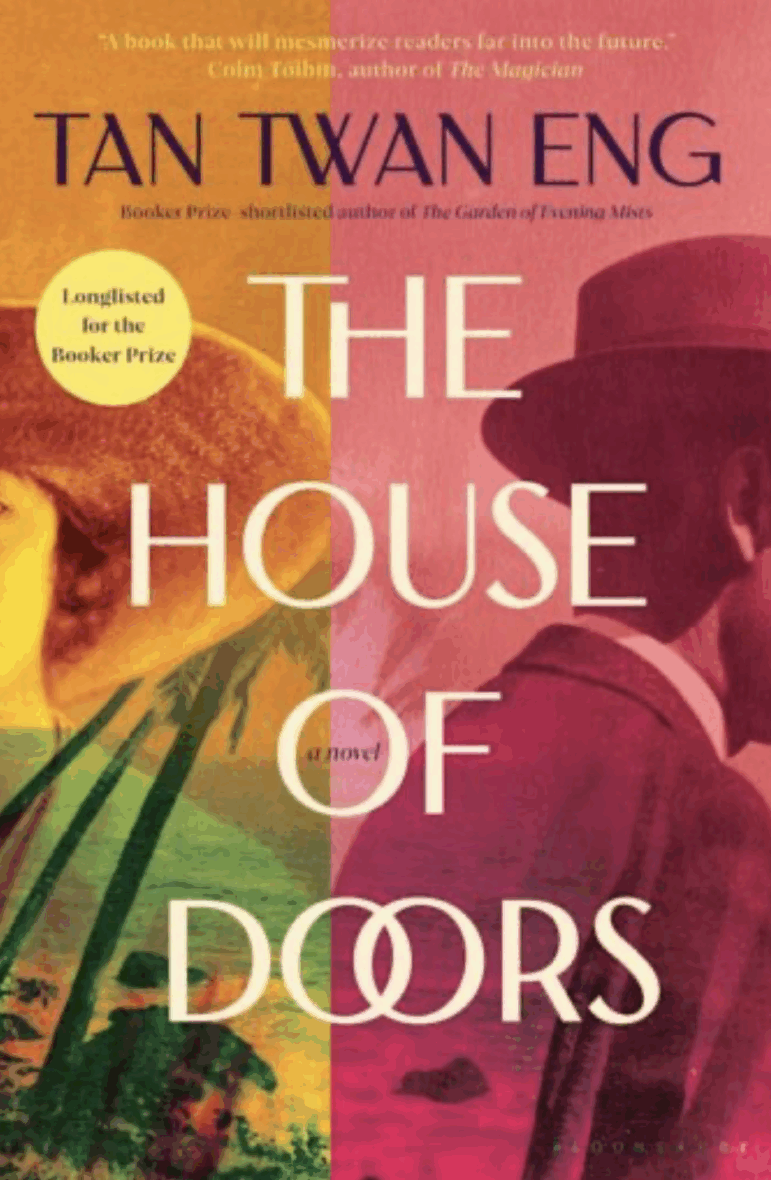
Image: Screenshot
George Town, Malaysia’s second largest city and the capital of its Penang province, is a wonderfully preserved colonial town of gardens, 19th-century houses, Chinese shops, colorful Hindu temples, and food markets. Many characters from the early 20th century rubbed elbows there: Sun Yat Sen had his headquarters there, Lord Elgin, Hermann Hesse, Rabindranath Tagore, and Albert Einstein visited as well. William Somerset Maugham fans will enjoy this story within a story, about Maugham’s visit to Penang in the 1920s with his lover, Haxton, and the affair and murder in the ex-pat colonial community that inspired Maugham’s book “The Letter” (later turned into an unforgettable film starring Bette Davis). (AS)
Confessions of an Old Boy: The Dato’ Hamid Adventures
Kam Raslan (2007)
Re-edited and reissued in 2023 by Maya Press, this book is a satirical collection of short stories following the misadventures and good-hearted buffoonery of a fictional character Dato’ Hamid. The protagonist is a privileged Malay civil servant and “old boy” of a premier school who encounters colourful characters from Kuala Lumpur to Paris, and from London to Los Angeles. Seduced by a beautiful Russian diamond thief and corrupted by a ruthlessly ambitious banker, these tales by writer and broadcaster Kam Raslan offer an entertaining take on the elite Malaysian life, with between-the-lines cultural insights. (EA)
Harmony Silk Factory
Tash Aw (2005)
A story of Malaya during World War II, this novel centers around Jimmy Lim, the self-made businessman who began with the clandestine Communist guerilla movement but then collaborated with the Japanese during the occupation. Narrated by the people around Lim — his son, his wife, and his best friend — this novel evokes village life in the region at the time, the brutality of the war, and the unreliability of memory. (AS)
 Eunice Au is GIJN’s global team manager. Before joining GIJN, she was a Malaysia correspondent for Singapore’s The Straits Times. She has written on a range of topics, including politics, crime, environment, terrorism, and entertainment. From 2011 to 2015, she worked for the New Straits Times and reported extensively on two Malaysian aviation tragedies. As a freelance writer, she contributed to The Sun, Malaysian Today, and Madam Chair.
Eunice Au is GIJN’s global team manager. Before joining GIJN, she was a Malaysia correspondent for Singapore’s The Straits Times. She has written on a range of topics, including politics, crime, environment, terrorism, and entertainment. From 2011 to 2015, she worked for the New Straits Times and reported extensively on two Malaysian aviation tragedies. As a freelance writer, she contributed to The Sun, Malaysian Today, and Madam Chair.
 Dr. Anya Schiffrin is the co-director of the Technology Policy & Innovation concentration at the School of International and Public Affairs at Columbia University in the United States. Her first trip to Malaysia was in 1998 covering a regional ministerial meeting during the Asian financial crisis. She writes on journalism, development, and investigative reporting in the global South. She recently co-authored a GIJN article on journalism in the movies.
Dr. Anya Schiffrin is the co-director of the Technology Policy & Innovation concentration at the School of International and Public Affairs at Columbia University in the United States. Her first trip to Malaysia was in 1998 covering a regional ministerial meeting during the Asian financial crisis. She writes on journalism, development, and investigative reporting in the global South. She recently co-authored a GIJN article on journalism in the movies.



